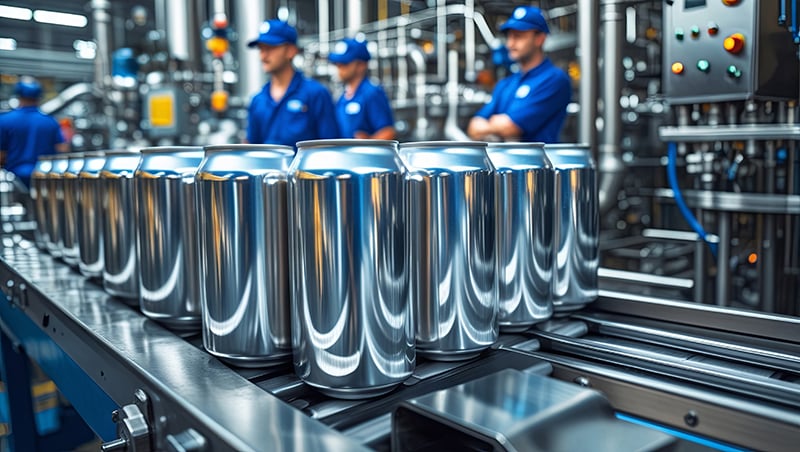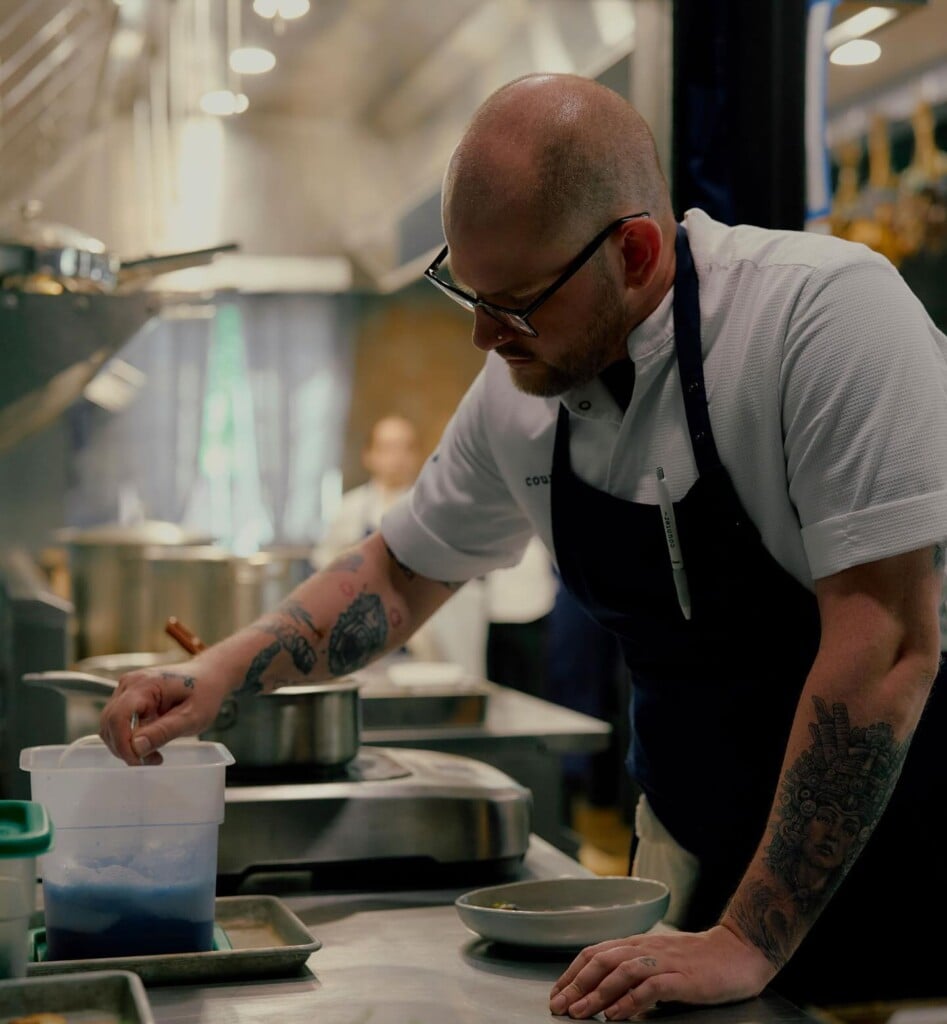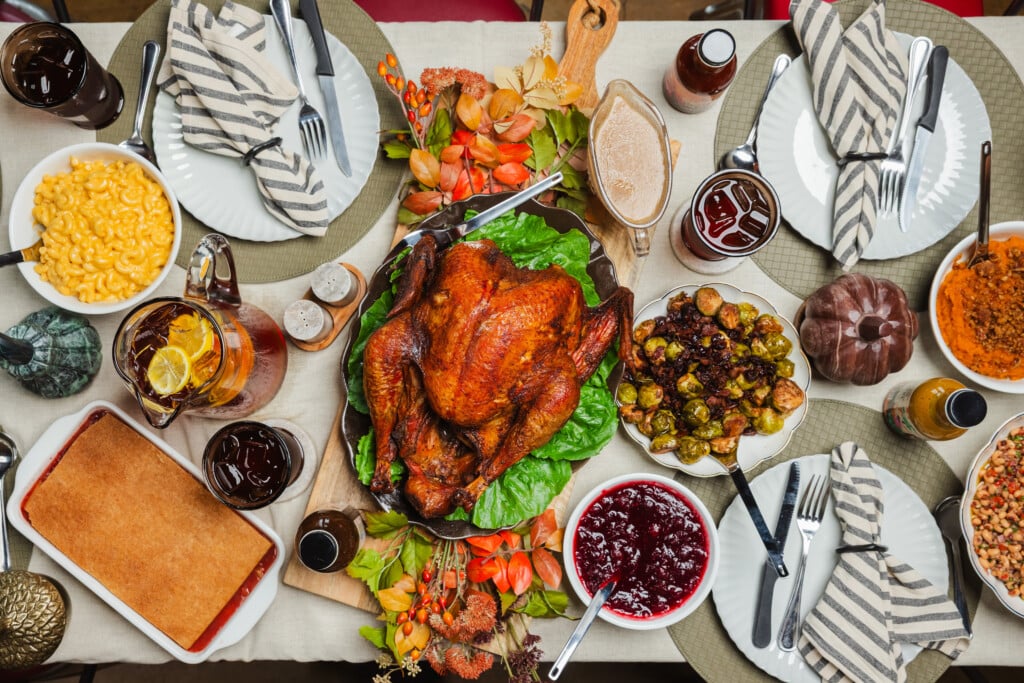Are Charlotte Brewers On The Verge Of A Canning Crisis?
Local brewers brace for the effects of Trump metal tariffs—especially the ones they can’t predict

Matt Virgil doesn’t want to be misunderstood. NoDa Brewing, one of Charlotte’s oldest and largest independent breweries, will probably be fine. It’s weathered the inflation that struck even before President Donald Trump took office in January. Like all small breweries, NoDa Brewing looks for ways to cut costs here, make more money there, without sacrificing beer quality—canned or not.
Still, at a picnic bench outside the main taproom on a warm weekday afternoon, the brewery’s co-owner and operations director lets his frustration slip. It’s about a month into the Trump administration’s 25% tariffs on foreign steel and aluminum, and you don’t have to be an economist or brewer to understand their potential to harm breweries. Worse, as of April, Virgil and his Charlotte brewing counterparts don’t know exactly what those effects will be; when they might happen; whether—or how much—brewers would raise prices to compensate for them; or how all of those factors would affect their businesses.
“It pisses me off,” Virgil says. “I try not to be super-politically charged here, because I know that other people are welcome to have differing opinions, but yeah, it just …” He stops to collect himself. “The point of these tariffs is to help American businesses. But it has the reverse effect, even if I’m buying more local stuff. It’s going to affect all of us. It’s just not how you do business.”
None of the brewers I spoke with could say when or whether their beer prices will rise, although Virgil says suppliers have enough aluminum in reserve to keep prices stable at least into fall. Their hesitancy reflects a consequence as poisonous to small businesses as spiking commodity prices: uncertainty. Trump has reversed course on some of his tariffs, though not those on metals. Business owners can adjust to change with enough warning. But who’s to say national policy won’t U-turn overnight via an announcement on X?
“I run a brewery. I’m not an economist. I’m not a politician,” says Brandon Stirewalt, operations director at Town Brewing in Wesley Heights. “I don’t understand global trade at the highest level and foreign relations and all that. But I don’t understand why these things had to be done in the first 100 days in office. … What I’m scared of is the potential for this to hurt, and any time you threaten the revenue of small businesses, you threaten their ability to exist.”
Most Charlotte brewers try to buy goods like malt from local or regional sources. Aluminum is more complicated. Boosting American manufacturing is one of the Trump administration’s stated reasons for the tariffs. But two of the three largest can manufacturers, Crown Holdings and The Ball Corporation, are domestic. (A third, Ardagh Group, has its headquarters in Luxembourg but 23 U.S. locations, including one in Winston-Salem.) Brewers typically buy from third-party brokers, which act as intermediaries between manufacturers and buyers; NoDa uses Chicago-based Berlin Packaging, which has a Charlotte office, and Town buys from Victory Packaging in Fort Mill.
The breweries, in other words, are “buying American.” But that doesn’t mean every stage of the process, from mining to finished cans, happens in the United States. Australia, Guinea, China, and Jamaica are among the world’s leaders in production of bauxite, the rock from which aluminum is derived; American bauxite production is negligible.
“There is a veil of, ‘We don’t know where everything in the supply chain comes from,’” Stirewalt says. “If I could buy aluminum made not just in this country but in the state of North Carolina, I promise you, I would. My buying habits outside of this country are not always motivated by price. A lot of times, it’s necessity. I don’t have anywhere else to get the product.”
Even when goods dodge the tariffs, the instability can cause stress. In November, Petty Thieves Brewing in North End used a city Corridors of Opportunity grant to buy its own canning station—from a supplier in Calgary, Alberta. The team sweated, but the station arrived before the tariffs took effect. It was a lucky break. Brewery President Ted Rosenau still worries about the long term.
“My larger concern is just the damage that it’s doing to local economies,” he says. “Everybody’s caught up in the recent inflation. Everything’s just gotten more expensive … and we are an affordable luxury, so we are one of the first things people cut out of their budget. I’m painfully aware of that fact. We’re fighting as hard as we can to keep the prices as low as we can, to stay an attractive option.” He pauses and adds, “That can only go so far.”





